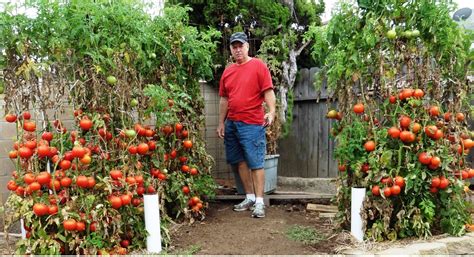Mastering Balcony Tomato Gardening: A Complete Guide for Urban Gardeners
Introduction
Tomato gardening can be both rewarding and practical, even if you live in an apartment with limited outdoor space. With the growing trend of urban gardening and balcony gardening, more people are turning their small areas into productive spaces. This guide will walk you through how to successfully grow tomatoes on your balcony, providing expert advice on everything from choosing the right containers to plant care. Whether you’re a beginner or a seasoned gardener, you’ll learn practical gardening tips and techniques to ensure a bountiful harvest of homegrown produce.
Key Concepts
- Container gardening refers to growing plants in pots or containers rather than directly in the ground, which is ideal for balconies.
- Small space gardening maximizes the use of limited areas like balconies, rooftops, or patios.
- Urban gardening adapts traditional gardening practices to confined or unconventional spaces in cities.
Historical Context
While container gardening has been practiced for centuries, urban gardening, particularly balcony gardening, has surged in popularity with the rise of city living and the desire for sustainable, locally grown food. The environmental movement of the 1970s catalyzed a shift towards homegrown produce, with urban gardens now recognized as solutions for food deserts and green spaces in densely populated areas.
Current State Analysis
Today, balcony gardening is a thriving hobby for millions of urban dwellers. However, gardeners face specific challenges such as limited sunlight, fluctuating temperatures, and space constraints. Fortunately, advancements in container gardening technology, such as self-watering pots and lightweight soil mixes, have made it easier to grow thriving tomato plants in small spaces.
Practical Applications
To start growing tomatoes on your balcony, follow these steps:
- Choose compact, determinate tomato varieties like ‘Patio Princess’ or ‘Tiny Tim,’ which are perfect for small spaces.
- Select a container at least 12 inches deep to accommodate root growth. Plastic pots, grow bags, or wooden planters are all suitable choices.
- Ensure your container has proper drainage. Add a layer of gravel at the bottom and use a high-quality potting mix formulated for vegetables.
- Position your plants in an area that gets at least 6 hours of sunlight per day. If your balcony is shaded, consider using grow lights to supplement.
- Water your plants consistently, aiming for moist but not waterlogged soil. Consider a self-watering container if you’re worried about under- or over-watering.
- Fertilize regularly with a balanced fertilizer to support healthy growth and fruit production.
- Use stakes, cages, or trellises to support your plants as they grow taller.
Case Studies
Example 1: Jane’s Small-Space Success
Jane, a beginner gardener living in a high-rise apartment, used a south-facing balcony to grow cherry tomatoes. She followed the principles of container gardening and used a 15-gallon fabric grow bag, achieving a bountiful harvest by mid-summer. Jane’s success was due to the careful selection of a determinate variety and regular watering.
Example 2: Mark’s Struggle with Shaded Balconies
Mark’s apartment balcony received less than 4 hours of direct sunlight each day. He solved this issue by installing LED grow lights designed for vegetables, which helped him achieve healthy, productive plants despite the lack of natural sunlight.
Stakeholder Analysis
| Stakeholder | Interest | Impact |
|---|---|---|
| Urban Gardeners | Interested in growing fresh produce in limited space | High |
| Apartment Owners | Concerned about aesthetics and space usage | Medium |
| Environmentalists | Support for sustainable food production | High |
Implementation Guidelines
- Planning: Choose the right tomato variety based on your balcony’s sunlight and space constraints.
- Setup: Use a sturdy container with good drainage and position it where it gets maximum sunlight.
- Maintenance: Water and fertilize consistently, and use plant supports to keep your tomato plants healthy.
- Problem-solving: If you encounter pests or diseases, address them with organic pest control methods or adjust watering practices.
Ethical Considerations
While balcony gardening reduces carbon emissions by lowering food transportation needs, it is essential to use environmentally friendly gardening materials. Avoid plastic containers where possible, use organic fertilizers, and conserve water by installing a drip irrigation system or using self-watering pots.
Limitations and Future Research
Balcony gardening may not be suitable for all urban dwellers due to structural limitations, such as balcony load-bearing capacity or excessive shading. Future research could explore more resilient tomato varieties that thrive in low-light conditions, as well as innovative irrigation systems for water conservation in arid urban environments.
Expert Commentary
“Growing tomatoes on a balcony may seem daunting at first, but with the right strategies, it can be a deeply rewarding experience. By selecting the appropriate variety, container, and plant care techniques, even beginners can enjoy a successful harvest,” says Dr. Green, a leading urban agriculture expert. “As urban gardening continues to evolve, we’re seeing innovations that make it easier than ever to grow your own food in small spaces.”


